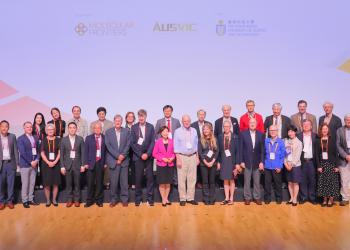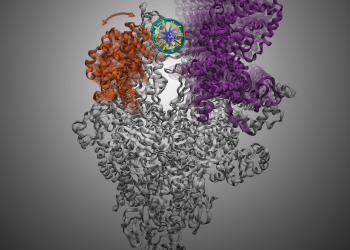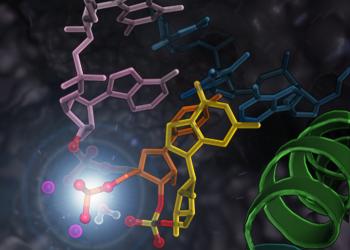News & Stories
2024

News
HKUST Welcomes Four Nobel Laureates at the Molecular Frontiers Symposium Sparking Passion for Science and Innovation Among Young Minds
The Hong Kong University of Science and Technology (HKUST) is excited to kick off a prestigious three-day “Molecular Frontiers Symposium” at Shaw Auditorium on campus today. The high-level event showcases a lineup of internationally renowned scientists including four Nobel laureates, serving as a dynamic thought-leadership platform for exchanging ideas among brilliant and young minds.
Around 40 leading molecular scientists, including Nobel laureates Prof. Stefan HELL, Sir Tim HUNT, Prof. K. Barry SHARPLESS, and Sir Gregory WINTER, will share their knowledge and insights spanning the latest development in genome editing, fluorescence microscopy and protein engineering in this inaugural symposium in Greater China entitled "Frontiers of New Knowledge in Science".
2022
2021

News
HKUST Scientists Discover How Antibiotics Target Bacterial RNAP to Inhibit Its Gene Transcription
A group of researchers at the Hong Kong University of Science and Technology (HKUST) has uncovered the mechanism of how DNA is being melted to start bacterial gene transcription and how one class of antibiotics inhibits this process – an important way in killing bacteria. This discovery provides useful insight on the development of new antibiotics for bacteria that is antimicrobial resistance.
2019

News
HKUST Scientists Discover How RNA Polymerase II Maintains Highly Accurate Gene Transcription with High-Performance Computing
Scientists from the Hong Kong University of Science and Technology (HKUST) have recently uncovered the mechanisms of how RNA polymerase II performs intrinsic cleavage reaction to proofread RNA transcriptions, shedding light on how mis-regulation of accurate transcription can lead to diseases including cancer and Alzheimer’s disease.
The message of life is encoded in our genomic DNA through transcription of messenger RNAs and translation of proteins to perform cellular functions. To ensure accurate transcription – a process that transcribes genomic DNA into messenger RNA by adding nucleotides one by one like letters in the alphabet, an enzyme called RNA polymerase II would synthesize and proofread messenger RNA to remove any mis-incorporated nucleotides that do not match with the DNA template.









